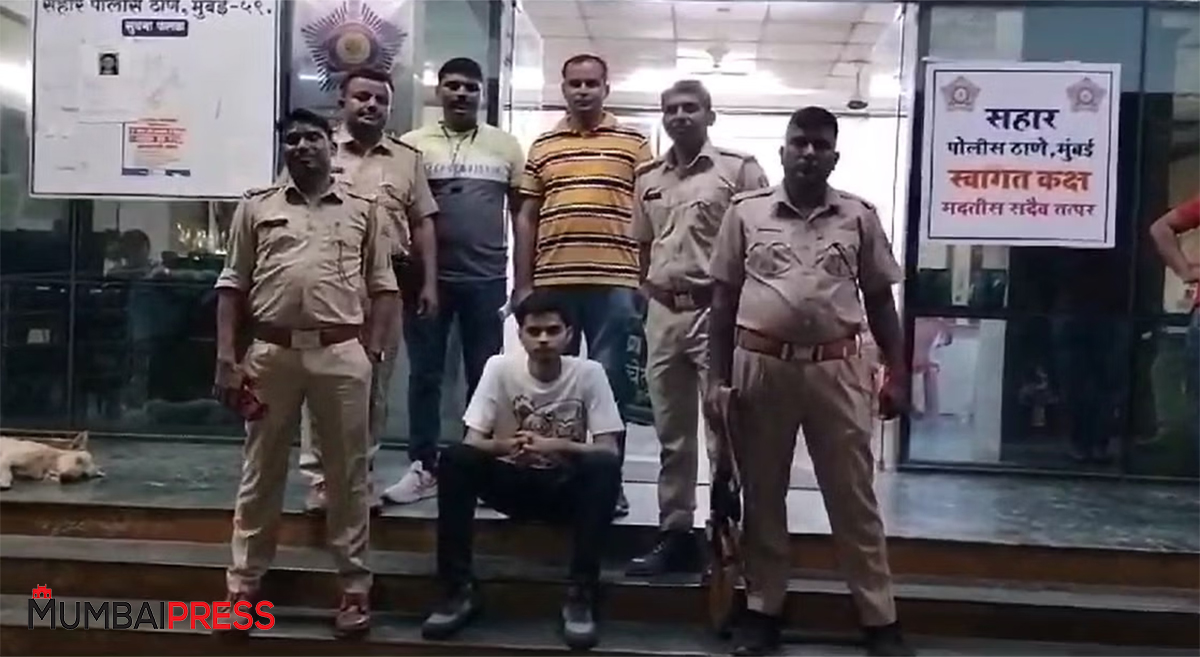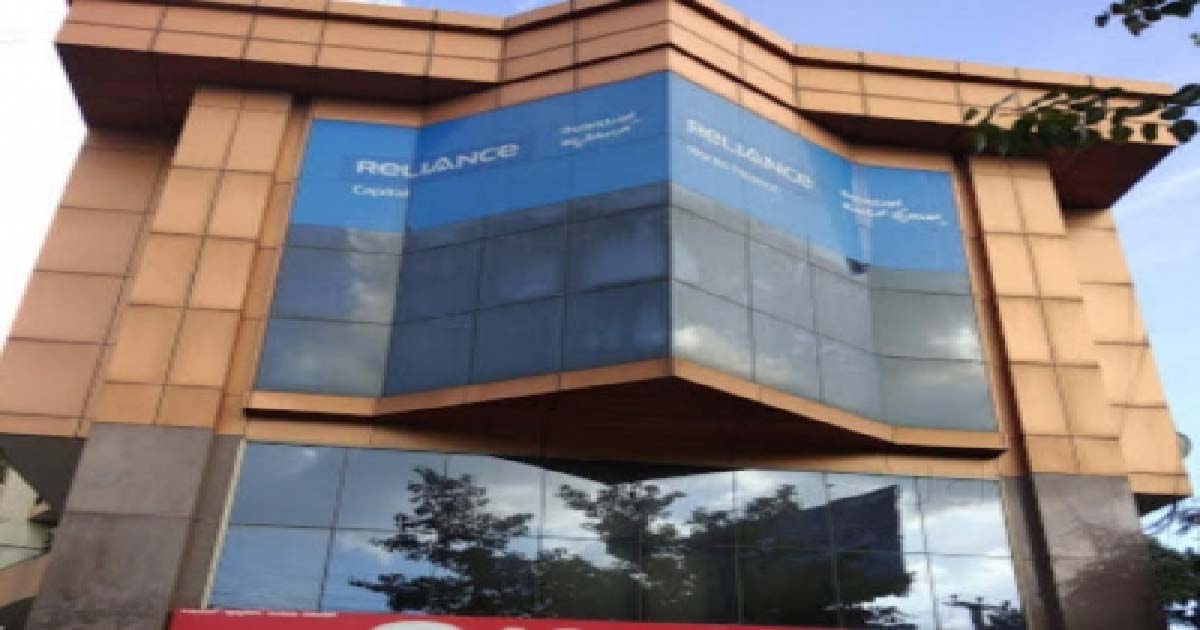Crime
Mahadev Betting App Case: Main Accused Saurabh Chandrakar’s Close Aide Mrigank Mishra Held At Mumbai Airport

Mrigank Mishra, one of the directors of the Mahadev app and a close associate of Saurabh Chandrakar, was arrested at Mumbai Airport on Saturday. A lookout notice had been issued against him in connection with the Mahadev betting app case. He had been staying in Dubai for the past two years and was arrested by the Rajasthan police with support from the Mumbai police upon arriving from Dubai. The Rajasthan police was in the picture since a case against him was filed in its jurisdiction.
Connection with Saurabh Chandrakar
According to Rajasthan police, Mishra, originally from Ratlam, Madhya Pradesh, lived a lavish lifestyle. He owns a residential property in Octra Crest Apartment, located in Lokhandwala, Kandivali (East). Recently, officials from central agencies conducted a search of the flat and seized several documents. During their investigation, they discovered that very few individuals within the organization were aware of his connection with Saurabh Chandrakar.
Rajasthan Police investigations have further revealed that Mishra managed to open over 1600 accounts for Mahadev app betting transactions. Initially, they identified and froze 90 accounts only,in which 68 had transactions totaling more than 2000 crore rupees. This substantial transaction amount is associated with IPL 2023 edition betting, involving funds received in these accounts from betting and withdrawals for hawala.
Amit Kumar, SP of Rajasthan, stated, ‘We are examining other accounts to obtain a clear estimate and understand the total amount of betting that was transferred to these accounts.’
Significant role in Mahadev betting app syndicate
According to Rajasthan police, Mishra played a significant role in the Mahadev betting app syndicate. His primary responsibility was to arrange bank accounts and SIM cards for accepting bets and processing transactions. Mishra, with the help of a local syndicate in Maharashtra, Madhya Pradesh, Chhattisgarh, Delhi, Rajasthan, and several other states, completed these tasks with minimal investments. He typically targeted individuals from lower-income classes, including vegetable sellers, shopkeepers, and daily wage workers. Gaining their trust by invoking various government schemes, Mishra would assist them in opening multiple accounts and obtaining several SIM cards using these individuals’ documents. These SIM cards and bank account details were provided to the associated panel operators of the Mahadev app.
These panel operators were, in fact, partners or associates of Saurabh Chandrakar, who is involved with the Mahadev betting app. These operators used the acquired SIM cards to accept bets from individuals, and the bank accounts to process the bet amounts and facilitate money transfers through Hawala channels to the UAE. These fake accounts were used to receive betting amounts for various T-20 series, IPL, and other league matches from various countries.
Complex betting, hawala operation using fake bank accounts
In May 2023, a case involving the Mahadev betting app came to light when a nationalized bank reported suspicious transactions across several accounts. The Rajasthan police initiated an investigation, which revealed a complex betting and Hawala operation using fake bank accounts. Among these accounts, 68 had transactions totaling more than 2000 crore rupees, primarily related to IPL betting matches. The police seized these accounts, which contained around 4 crore rupees.
What made this case even more concerning was that the victims were unaware that these bank accounts were opened and operated in their names.
Business
CBI books Reliance Commercial Finance, its promoters in Rs 57.47 crore bank fraud case

Mumbai, Dec 9: The Central Bureau of Investigation (CBI) on Tuesday said it has filed a criminal case against Reliance Commercial Finance Ltd (RCFL) and its promoters and directors over allegedly causing wrongful loss of Rs 57.47 crore to Bank of Maharashtra.
The case has been registered against RCFL — a company of Reliance ADA Group, its promoters/directors and unknown bank officials, on the allegations of criminal conspiracy, cheating and criminal misconduct and thereby, the CBI said in a statement.
According to the statement, the loan account of Reliance Commercial Finance Ltd was declared an NPA by the bank on March 25, 2020 and also as fraud on October 4, 2025, for causing wrongful loss of Rs 57.47 crore to Bank of Maharashtra.
“RCFL was availing loans to the tune of Rs 9,280 crore from 31 banks/ FIs/NBFCs/Corporate Bodies, etc., including Bank of Maharashtra. A thorough investigation will be conducted into the allegations of defrauding all the banks/FIs, etc. by the accused company,” said the CBI.
The probe agency obtained search warrants from the court of a Special CBI judge, Mumbai and commenced searches at the official premises of RCFL at Mumbai and the residential premises of Devang Pravin Mody, Director of the company, at Pune, on December 9.
“Several incriminating documents have been observed and are being taken into possession during searches. Searches are in progress,” the CBI said.
Meanwhile, the Enforcement Directorate (ED) has filed a supplementary charge sheet against Reliance Power Ltd and 10 others, in the case of fake bank guarantees of Rs 68 crore submitted by Reliance Power Limited to the Solar Energy Corporation of India (SECI) for the purpose of securing a tender issued by it. ED attached the proceeds of crime worth Rs 5.15 crore as well.
Reliance Power Ltd said in a statement that “ED allegations have not yet passed through judicial scrutiny and the Company has not been held guilty of any wrongdoing”.
“As per law settled by the Supreme Court, the company will get an opportunity to put across its case and facts before the court, even before cognisance, so filing of this complaint does not affect the affairs of the company in any manner,” said the company in an exchange filing.
Crime
Mumbai: Man Arrested At Airport For Derogatory Social Media Posts On Bhagavad Gita & Women

Mumbai: Mangaluru City Police have arrested a Mumbai native accused of uploading social media posts that promoted feelings of enmity or hatred in 2024.
The accused, who was working in Saudi Arabia, was arrested at Mumbai Airport based on a Look Out Circular (LOC).
The accused, Felix Edward Mathais (aged 56), is alleged to have circulated derogatory posts about the Bhagavad Gita and women in February 2024.
A case was registered against him at the Kankanady City Police Station under sections 153(A), 504, 507, 509 of the IPC and Section 66(D) of the IT Act.
At the time the case was filed, Mathais was in Saudi Arabia for employment, which prevented his arrest. The accused, originally from Charkop, Mumbai, was the subject of an LOC issued by the police following information gathered about his overseas employment.
The accused landed at Mumbai Airport from abroad. Immigration officials detained him and informed the Mangaluru Police. Subsequently, he was arrested at the Airport on December 5, 2025.
He was brought to Mangaluru for investigation and produced before the Court. A report has been submitted to the court requesting the confiscation of his passport.
Another accused in the case, Evigin John D’Souza (aged 57), was previously arrested on August 11, 2024, and produced before the court.
The investigation into the case is ongoing.
Crime
Palghar Crime: 40-Year-Old Constable Arrested For Allegedly Raping Woman Inside Kasa Police Station

Palghar, Maharashtra, Dec 08: A 40-year-old police constable has been arrested for allegedly raping a woman inside the Kasa police station in Maharashtra’s Palghar district, officials said on Monday.
According to a senior official from the Palghar rural police, the incident took place last week when the woman had visited the station to record her statement in connection with an ongoing case. The constable allegedly assaulted her within the premises.
Following a complaint filed by the woman, a case of rape was registered and the constable was arrested on Sunday, officials confirmed.
In the aftermath of the incident, the in-charge of the Kasa police station has been transferred. Further investigation is underway.
-

 Crime3 years ago
Crime3 years agoClass 10 student jumps to death in Jaipur
-

 Maharashtra1 year ago
Maharashtra1 year agoMumbai Local Train Update: Central Railway’s New Timetable Comes Into Effect; Check Full List Of Revised Timings & Stations
-

 Maharashtra1 year ago
Maharashtra1 year agoMumbai To Go Toll-Free Tonight! Maharashtra Govt Announces Complete Toll Waiver For Light Motor Vehicles At All 5 Entry Points Of City
-

 Maharashtra1 year ago
Maharashtra1 year agoFalse photo of Imtiaz Jaleel’s rally, exposing the fooling conspiracy
-

 National News1 year ago
National News1 year agoMinistry of Railways rolls out Special Drive 4.0 with focus on digitisation, cleanliness, inclusiveness and grievance redressal
-

 Maharashtra1 year ago
Maharashtra1 year agoMaharashtra Elections 2024: Mumbai Metro & BEST Services Extended Till Midnight On Voting Day
-

 National News1 year ago
National News1 year agoJ&K: 4 Jawans Killed, 28 Injured After Bus Carrying BSF Personnel For Poll Duty Falls Into Gorge In Budgam; Terrifying Visuals Surface
-

 Crime1 year ago
Crime1 year agoBaba Siddique Murder: Mumbai Police Unable To Get Lawrence Bishnoi Custody Due To Home Ministry Order, Says Report












